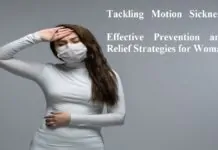The impact of low self-esteem on mental health is more significant than what one might imagine, and therapy can help if you’re struggling. When should you get therapy for self-esteem?
How does self-esteem make a difference in a person’s life? Today, we will talk about the real impact that self-esteem has on a person and their life as well as when and how to reach out for support.
Table of Contents
What Is Self Esteem?
Self-esteem refers to a person’s perception of their worthiness or self-worth. The dictionary definition of self-esteem is: “a realistic respect for or favorable impression of oneself; self-respect.” Our self-esteem influences the way that we move through the world, the confidence we have in ourselves, and so much more.
Someone with good or healthy self-esteem thinks of themselves as equal to others, where someone who struggles with self-esteem might think of themselves as less-than.
The Impact Of Low Self-Esteem
Low self-esteem can impact your mental health, interpersonal relationships, your career, and your overall quality of life. There are a number of potential causes for low self-esteem. These may include but are not limited to a history of abuse, bullying, lack of support from caregivers as a child, or a history of mental health conditions such as depression.
Research shows that those who have low self-esteem are at an increased risk of major depressive disorder and other mental health conditions, such as substance use disorders and eating disorders.
It has also been shown that low self-esteem can impact relationship satisfaction, and while it may seem somewhat unrelated, there are a number of reasons for this.
First, low self-esteem can make it hard to communicate your needs. You may feel as though you aren’t worth having your needs met, or you may have trouble asserting that you have needs due to fear of rejection.
It can also contribute to jealousy, reassurance-seeking, difficulty being yourself, relationships with people who aren’t a good match for you, or relationships with people who don’t treat you well.
Low self-esteem can cause difficulty with decision-making, and it makes it hard to trust yourself, which can affect all areas of your life. So, you might wonder, what can you do to work on your self-esteem?
How To Improve Self Esteem
It is possible to improve your self-esteem. Here are some things you can do:
- Identify and challenge cognitive distortions. These may include but aren’t limited to all or nothing thinking, catastrophizing, personalization, mind-reading, and “should” statements. For example, if you think, “I should have done that right. I’m foolish and always mess up!” after making a mistake, you can combat it by saying, “It’s okay. Everyone messes up. This doesn’t say anything negative about me or my intelligence. Now, I have more information for next time.”
- Use positive self-talk. This might mean saying things like, “I can trust myself,” “I am worthy,” or “I deserve to be around people who treat me well.” It is also helpful to highlight your positive qualities and think about or actively list what you like or appreciate about who you are as a person.
- Make sure you’re using self-care. Check in with yourself on a regular basis by asking, “what do I need?” This could refer to what you need emotionally or physically.
In some cases, it can also be helpful to be honest with yourself if something in your life is negatively impacting your self-esteem.
For example, you may have someone in your life who puts you down or who makes you feel bad about yourself.
In this case, it may be time to distance yourself, especially if you’ve spoken with them about it and they don’t stop. A therapist or counselor can help if this is something you struggle with.
When To See A Therapist
As for when to see a therapist for self-esteem goes, the answer is that you can reach out to a therapist or counselor at any time.
Although this is by no means an extensive list, you may decide to see a therapist for concerns related to self-esteem if any of the following are true for you:
- Low self-esteem is affecting your interpersonal relationships, whether those are romantic relationships or relationships of another kind.
- Low self-esteem is affecting your overall quality of life.
- You’re experiencing symptoms of major depressive disorder, anxiety, or other mental health conditions.
- Low self-esteem affects your ability to make goals, meet your goals, or engage in activities that you want to engage in.
- You find yourself shying away from social situations or meeting new people due to low self-esteem.
- You’re experiencing negative thoughts about yourself on a regular basis.
- Negative thoughts about yourself are putting a damper on your mental health.
- You can’t imagine things changing or getting better.
- You feel hopeless, worthless, or as though you are not good enough.
- A negative past experience contributed to the way you feel or think about yourself or your life.
Whether it’s self-esteem or something else that’s on your mind, you don’t have to wait until something has a severe negative impact on your life to reach out. It’s also never too late to reach out for support, and no matter where you’re at right now, you can get to a better place.
Therapy can help you identify maladaptive thought patterns that are harming your self-esteem, work through anything that may have impacted your self-esteem negatively, such as past relationships, bullying, trauma, and so on, and take the steps toward improved self-esteem and more advantageous thought patterns. These are only some of the ways that therapy can help with self-esteem.
Finding A Therapist
If you want to work on your self-esteem, or if you’re going through anything else in life such as relationship issues, mental health concerns, stress, and so on, you may be wondering how to find a therapist.
To find a therapist, you can ask your doctor for a referral to a provider near you, contact your insurance company to see who they cover, conduct a web search, use an online directory, or sign up for a reputable online therapy website like MyTherapist.
Every therapist and counselor on the platform is licensed, and it’s more affordable than traditional in-person counseling or therapy is in the absence of insurance.
Whether you see a therapist or counselor online or in person, you deserve to get the support that you need, so don’t hesitate to reach out for help.


















